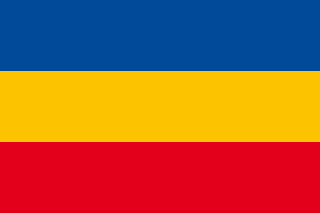Mecklenburg-Strelitz may refer to:
- Duchy of Mecklenburg-Strelitz (1701–1815), a duchy of the Holy Roman Empire and the Confederation of the Rhine
- Grand Duchy of Mecklenburg-Strelitz (1815–1918), a Grand Duchy of the German Confederation and the North German Confederation, that later became part of the German Empire
- Free State of Mecklenburg-Strelitz (1918–1933), part of the Weimar Republic and Nazi Germany
- Mecklenburg-Strelitz (district) (1994–2011), a district in the southern part of Mecklenburg-Western Pomerania

The Duchy of Mecklenburg-Strelitz was a duchy in northern Germany, consisting of the eastern fifth of the historic Mecklenburg region, roughly corresponding with the present-day Mecklenburg-Strelitz district, and the western exclave of the former bishopric of Ratzeburg in modern Schleswig-Holstein. At the time of its establishment, the duchy bordered on the territory of Swedish Pomerania in the north and of Brandenburg in the south.

The Grand Duchy of Mecklenburg-Strelitz was a territory in Northern Germany, held by the younger line of the House of Mecklenburg residing in Neustrelitz. Like the neighbouring Grand Duchy of Mecklenburg-Schwerin, it was a sovereign member state of the German Confederation and became a federated state of the North German Confederation and finally of the German Empire upon the unification of 1871. After World War I and the German Revolution of 1918–19 it was succeeded by the Free State of Mecklenburg-Strelitz.

The Free State of Mecklenburg-Strelitz was a state of the Weimar Republic established in 1918 following the German Revolution which had overthrown the Grand Duchy of Mecklenburg-Strelitz. The state lasted until the Nazi Party (NSDAP) came to power in Germany and merged the state with the neighbouring Free State of Mecklenburg-Schwerin to form a new united state of Mecklenburg.
| This disambiguation page lists articles associated with the title Mecklenburg-Strelitz. If an internal link led you here, you may wish to change the link to point directly to the intended article. |








